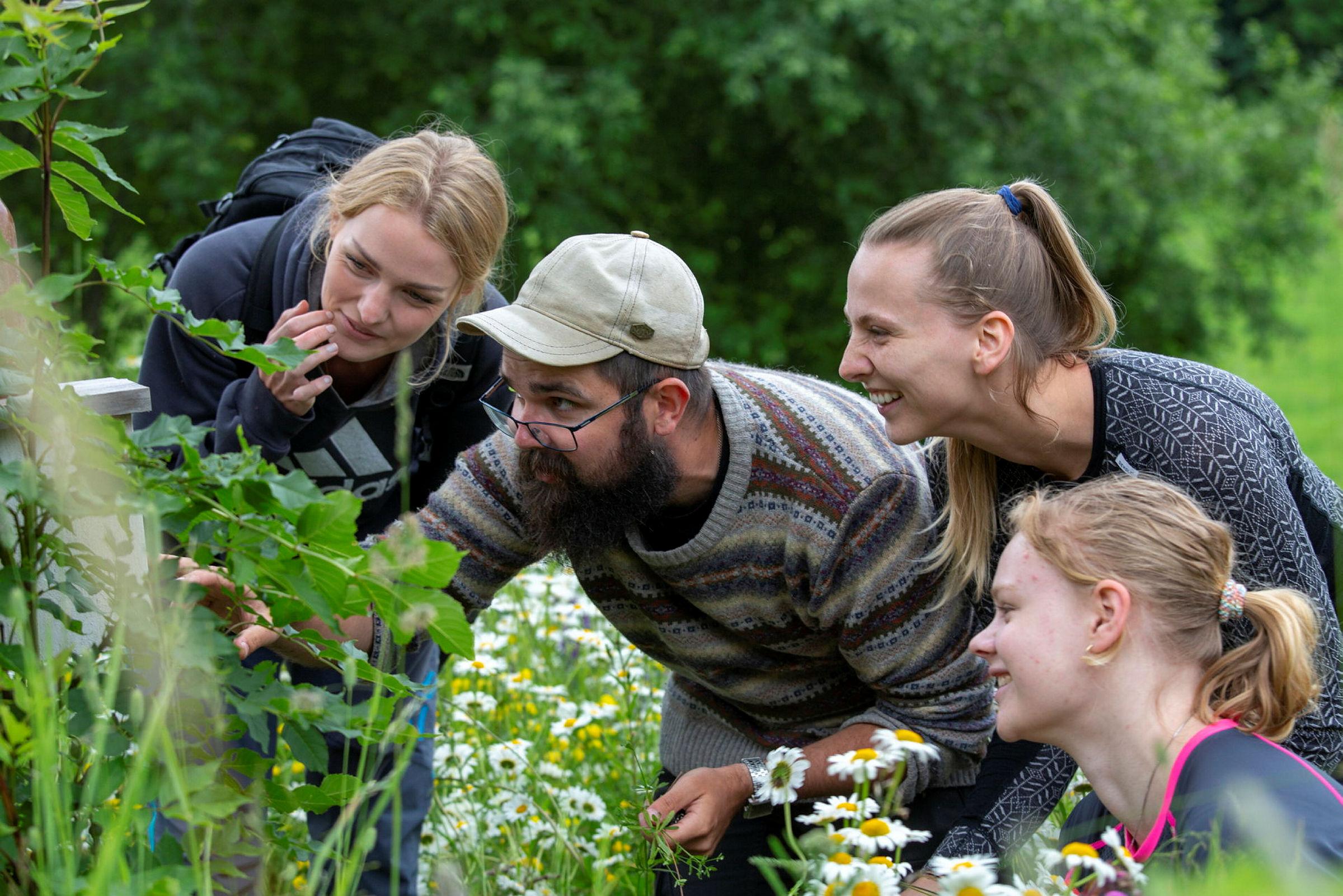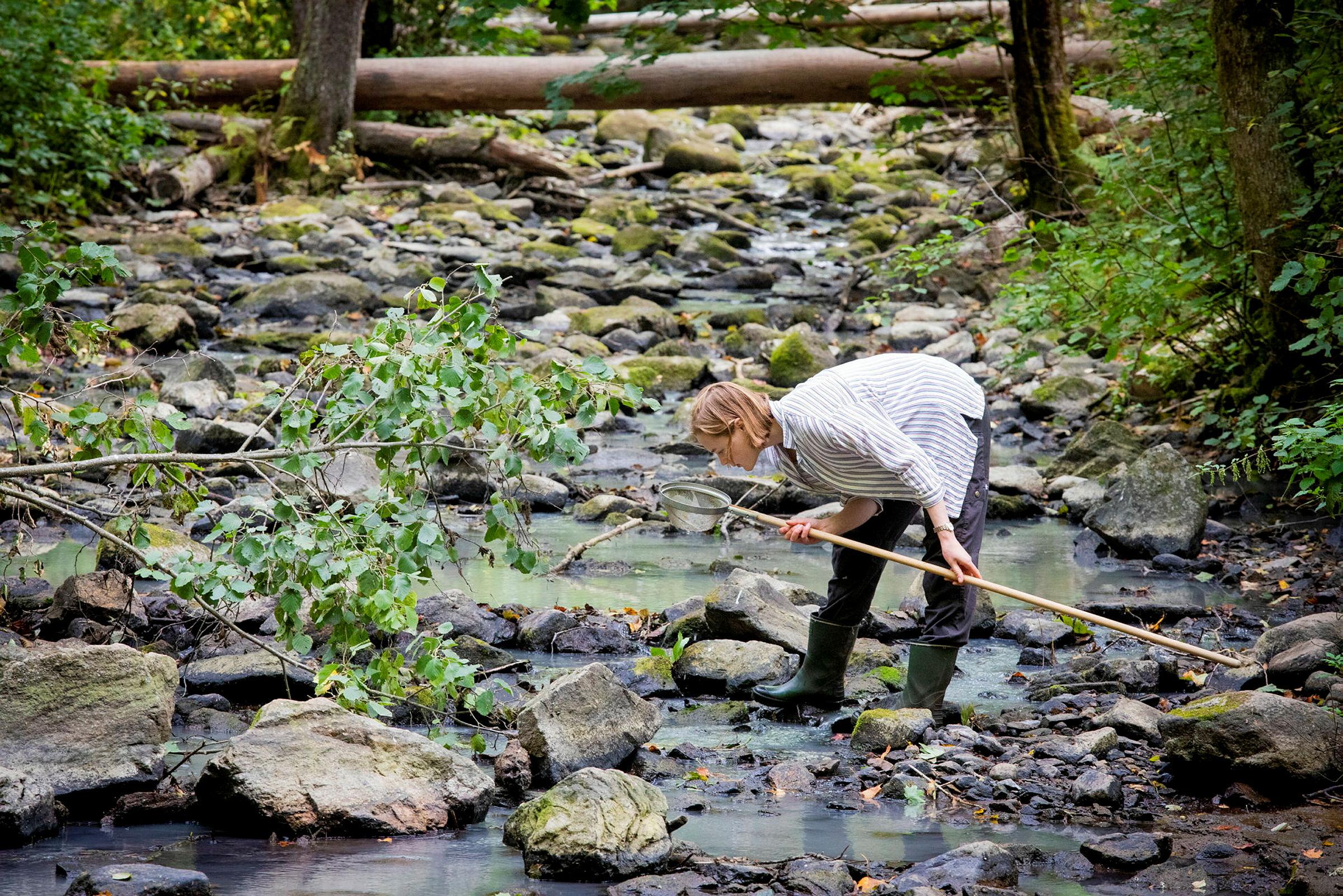Doctoral degreeFull timeEnvironmental Sciences and Natural Resource Management
The PhD programme in Environmental Sciences and Natural Resource Management, at the Faculty of Environmental Sciences and Natural Resource Management.
Application deadline:
Continuously
Start of Studies:
Continuously
Requirements:
Candidates apply for available PhD positions that are advertised publicly. Funding is provided from the Faculty’s financial resources or from external projects.
Requirements in detail
The admission requirements for the PhD programme follow current regulations and guidelines for doctoral degrees at NMBU. This means that the applicant has completed an academically relevant education that corresponds to a five-year Norwegian study programme where 120 credits must be at master's degree level. The applicant must have achieved the learning outcomes that correspond to the descriptions in the Norwegian qualifications framework's second cycle. MINA has specified the following additional requirement: an applicant must document an average grade B or above on subjects included in the master’s degree (120 credits). Deviation from this may be allowed if good arguments are provided.
Candidates apply for available PhD positions that are advertised publicly. Funding is provided from the Faculty’s financial resources or from external projects.




Learning outcomes
KNOWLEDGE
Upon completion of the PhD program, the new doctor is expected to:
- have in-depth knowledge within their subject area and master the subject area's theories
- be able to assess and analyse different theories, methods and processes in research and scientific development projects
- contribute to the development of new knowledge, new theories, new methods, interpretations and forms of documentation within their subject area
SKILLS
Upon completion of the PhD program, the new doctor is expected to:
- be able to formulate problems and hypotheses, plan and conduct research and scientific development work at high international standards within their field of study
- know how to use the scientific equipment, instruments and analytical tools of their subject area
- master relevant statistical methods and be able to assess the utility and limitations of these methods
- have conducted original research that has led to new knowledge that can be published in international peer-reviewed journals
- be able to handle complex academic issues, and combine scientific information
- be able to perform critical assessments and give constructive criticism on scientific work in their field
- communicate research results both orally and in writing
GENERAL COMPETENCES
Upon completion of the PhD program, the new doctor is expected to:
- be able to conduct their research with professional and ethical integrity and identify and evaluate relevant issues from an ethical and sustainable perspective
- be able to perform risk assessments of their work, and to take health and safety aspects, as well as environmental aspects into consideration
- be able to participate in complex interdisciplinary tasks and projects
- be able to disseminate research and developmental work through recognized national and international channels and participate in scientific debates within their own field of study
- be able to place their own research in larger academic and societal contexts
- be able to assess the need for and, if required, stimulate innovation in their subject area
Exchange possibilities
MINA supports exchanges, nationally and internationally.
PhD candidates are encouraged to participate in international courses and to stay at a foreign research institution during the PhD period.
Program structure
The structure is dictated by the formal length of three years full time study including a minimum of 30 study points (ECTS) dedicated to coursework. During these three years, the three obligatory seminars (start-up, midway and final) provide structure allowing quality assurance, progress monitoring and these also offer the candidates useful feedback for the work ahead.
The research work shall be an independent, scientific work that fulfils ethical standards, international standards and is of high academic quality. This is reflected in the formulation of research questions, the specification of concepts, the methodological, theoretical, and empirical basis, documentation, the use of literature and the communication of his/her own research. The work will be planned and carried out in consultation with the supervisors and any external partners, if relevant. A realistic milestone plan must be drawn up, so that the work can be completed, and the thesis submitted by the end of the contract period. The main supervisor has overall responsibility for ensuring that the plan is realistic.
The supervisors and the research group as a whole will be the prime source of support to the candidate.
The candidate will be provided with regular office facilities as well as field and laboratory requirements as agreed upon with supervisors and the Faculty in the PhD-candidates research plan and in the PhD agreement.
More about the program
Societal relevance
The Faculty has a wide subject profile. MINA offers comprehensive research and teaching activities in soil sciences, limnology, hydrology, geology, environmental chemistry, radio-ecology, behavioural ecology, biodiversity, conservation biology, population and community ecology, botany, zoology, ecophysiology and ecotoxicology, forestry, fish and wildlife management, renewable energy, environmental impacts of land use and habitat change, nature-based tourism, wood technology, bio-economy, ecosystem services, as well as market and natural resource mapping, economics and planning.
Our research often has direct and high societal relevance, and our findings have clear application value. PhD candidates graduated from MINA work in a number of sectors, in public administration, at research institutions and in the higher education sector, as well as in the private sector.
Learning activities
The various learning activities used to achieve the above learning outcomes are used in an overall and unified manner. Regular supervision is considered particularly important.
MEANS TO AQUIRE THE KNOWLEDGE
- the required coursework of at least 30 credits, consisting of a combination of compulsory and elective courses in the subject area, provides comprehensive and in-depth competence
- reading and keeping updated on literature within his/her subject area
- working on the PhD thesis where the PhD candidate writes the synopsis of the thesis, which provides a theoretical and practical background for the research work, and which justifies the choice and use of research methods and puts his/her results in an international perspective
MEANS TO AQUIRE THE SKILLS
- participating in planning and designing his/her PhD project in detail, and through planning of new projects, if relevant
- developing his/her own academic network outside the supervisory team
- attending national and international meetings and conferences
- working on publishing his/her own research results
- taking part in peer reviews of scientific manuscripts, giving feedback on colleagues' manuscripts, and attending seminars where other PhD candidates’ and researchers’ ideas and results are discussed
- supervision and own research work, where the PhD candidate actively benefits from the competence of the supervisory team
MEANS TO AQUIRE THE GENERAL COMPETENCES
- attending a course on research ethics at doctoral level with a scope of at least 5 credits
- through supervision and own research
- working on publications and the thesis
- presenting own research findings at national and international scientific workshops and conferences
- hosting seminars where the candidate presents her/his own research
- working on the trial lecture within a specified topic
Examination
The degree of philosophiae doctor (PhD) is conferred on the basis of:
- approved completion of the required coursework
- an approved doctoral thesis
- an approved trial lecture on a specified topic
- an approved public defence of the doctoral thesis (disputation).
The required coursework is evaluated using different forms of evaluation in accordance with the study regulations at NMBU.
The content of the required coursework is approved by the Faculty’s research committee (forskningsutvalg).
Progress is monitored by means of annual progress reports and compulsory seminars (introductory seminar, midway assessment and final seminar).
Other means to achieve the learning outcomes are not evaluated explicitly, but the main supervisor is responsible for ensuring that these are met through relevant and regular day-to-day supervision, scientific discussions, and steps towards dissemination of the doctoral work.
Study advisor(s):
